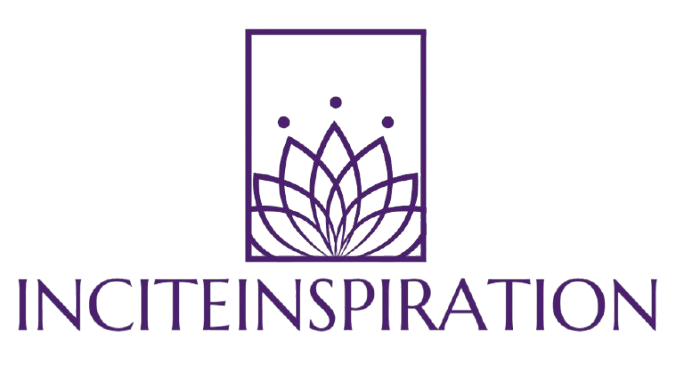In today’s fast-paced world, the ability to learn quickly and retain information is more important than ever. Whether you’re a student trying to excel academically or a professional eager to stay ahead in your field, the skill of accelerated learning can provide a significant edge. Fortunately, by understanding the psychological mechanics behind how we learn, you can optimize your approach to absorbing and retaining information, ensuring that you get the most out of your time and effort.
Understanding the Brain’s Learning Mechanisms
At the core of accelerated learning lies a deep understanding of how our brains process and retain information. The brain, while incredibly powerful, is also quite efficient at learning. The process begins in the hippocampus, a small but vital region responsible for forming and storing memories. Whenever we experience something new, the hippocampus helps encode that information, allowing us to retrieve it later when needed. However, this process can be hindered by factors like stress, distractions, and ineffective learning techniques.

Motivation and Mindset: A huge factor that influences the speed at which we learn is our mental state. According to psychologist Carol Dweck’s groundbreaking research on the growth mindset, people who believe their intelligence and abilities can be developed through effort and practice are more likely to embrace challenges, overcome setbacks, and ultimately learn faster. When you approach learning with an open and motivated mindset, you’re essentially “priming” your brain to absorb and retain new information more efficiently.
Practical Strategies for Faster Learning
- Active Learning
While passive learning methods, like reading or listening, are commonly used, they don’t always lead to deep understanding or long-term retention. Active learning, on the other hand, involves engaging directly with the material, whether through discussions, teaching someone else, or applying what you’ve learned in real-world situations. This hands-on approach not only reinforces your knowledge but also helps you identify gaps in your understanding. - Spaced Repetition
The forgetting curve illustrates how information fades from memory over time. To combat this, spaced repetition involves reviewing material at increasingly longer intervals. By revisiting content just before you’re likely to forget it, you can significantly improve long-term retention. Tools like flashcards or spaced repetition software, such as Anki, can be incredibly effective in ensuring that the information stays fresh in your mind. - Mnemonic Devices
Mnemonics are memory aids that help you encode complex material into simpler, more memorable formats. Techniques like creating acronyms, rhymes, or visualizations can turn difficult-to-remember facts into easy-to-recall cues. For instance, creating a vivid mental image or associating a concept with a familiar scenario can significantly boost your ability to recall information quickly. - Chunking
Chunking involves breaking down large chunks of information into smaller, more manageable pieces. For example, instead of memorizing a long string of numbers, you might group them into sets of three or four digits, like a phone number. This strategy allows the brain to process and store information more efficiently by organizing it into meaningful clusters. - Visual Memory Techniques
Human brains are naturally inclined to process visual information more efficiently than text alone. By using visual memory strategies like mind maps, diagrams, and color-coding key concepts, you can create visual representations that help cement the material in your mind. This technique leverages the brain’s natural ability to store and recall visual cues, making learning more intuitive and engaging.
The Importance of Mindfulness and Emotional Regulation
Incorporating mindfulness into your learning routine can enhance your focus and reduce stress, both of which are crucial for effective learning. Being fully present and engaged with the material—not allowing distractions or multitasking to take over—helps create stronger neural connections, which aids memory retention. Similarly, maintaining a positive emotional state can boost cognitive performance. Negative emotions like stress and anxiety can impair learning, while curiosity and excitement can facilitate deeper engagement with the material.
Sleep and Nutrition: Fueling the Learning Process
Both sleep and nutrition play pivotal roles in the brain’s ability to learn. Sleep is essential for memory consolidation—the process by which new memories are strengthened and stored. Aim for 7-8 hours of quality sleep each night to ensure your brain has the time it needs to process and organize new information. Similarly, eating a brain-boosting diet rich in omega-3 fatty acids, vitamins, and antioxidants can support cognitive function. Foods like fish, dark chocolate, blueberries, and nuts can all contribute to better mental clarity and memory.

Technology: A Modern Ally in Learning
In today’s digital age, technology offers a wealth of tools to enhance the learning process. Online courses, educational apps, and video lectures can supplement traditional study methods, offering new ways to engage with content. Spaced repetition apps like Anki or Quizlet are excellent tools for reinforcing what you’ve learned, while productivity tools like Evernote and Notion help keep your study materials organized.
The Role of Self-Assessment and Feedback
One often-overlooked aspect of accelerated learning is self-assessment. Regularly evaluating your progress helps you identify areas of weakness and adjust your learning strategies accordingly. Feedback, whether from peers, mentors, or even self-reflection, is critical for refining your approach and ensuring that you’re on the right path toward mastering the material.
Conclusion: Learning Faster, Retaining More
The psychology of accelerated learning offers a fascinating glimpse into how we can optimize our cognitive abilities. By leveraging strategies like active learning, spaced repetition, and mnemonic devices, along with nurturing a growth mindset and mindful emotional regulation, you can dramatically improve your ability to learn faster and retain more information. Remember, the key to accelerated learning is not just about speed—it’s about creating lasting connections in your brain that allow you to recall and apply knowledge more effectively. Whether you’re a student, professional, or lifelong learner, these techniques can help you achieve your goals faster, with greater success.

